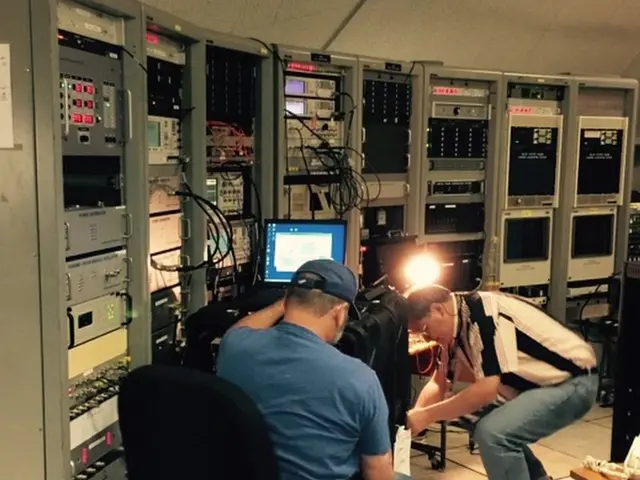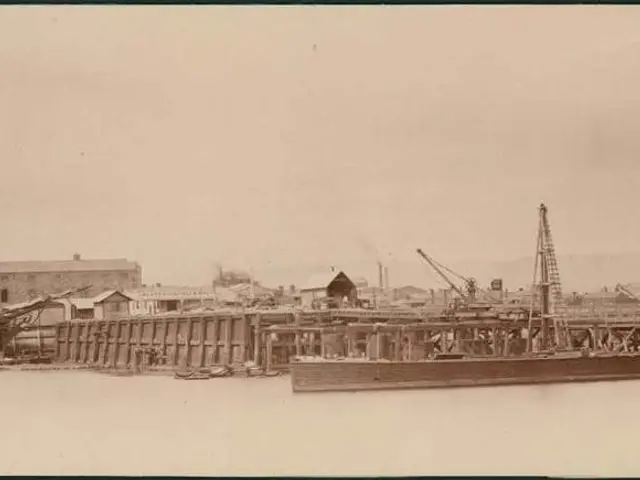Delving Deeper into Southern Lower Saxony's Resource Hunt
Resource exploration broadens in southern Lower Saxony by the company - The enterprise broadens its quest for basic resources across southwestern Lower Saxony
The mining sector in Southern Lower Saxony is gearing up for a significant expansion, as Anglo American Exploration Germany is eyeing a search for salts in the region alongside their existing hunt for metals. Announced by the Lower Saxony Mining Authority LBEG, the company has its sights set on exploring rock and potash salts in an approximately 1,961 square-kilometer area known as the Leine-Salt area.
The Leine-Salt area is located in the western Harz foreland, south of Hildesheim and Salzgitter, and north of Göttingen. Cities like Einbeck, Seesen, and Herzberg am Harz fall within this zone. Currently, Anglo American is already ongoing search for deposits of copper, lead, gold, or silver beneath the ground, using a georadar-equipped aircraft based in Hildesheim. This search permit is valid until the end of 2028 for both metals and salts.
Apart from Southern Lower Saxony, the company is also actively involved in explorations in Thuringia. Should the resource deposits be found abundant enough for economical extraction, a further permit would be required.
Copper, an essential resource for the energy transition and economic development, is critical for the company's aim to extend responsible resource extraction possibilities. With the goal of increasingly mining important resources in Europe, there are ongoing investigations and test drillings in Thuringia as well.
Though current research in Lower Saxony mostly focuses on sedimentary basins, their structural characteristics, and reservoirs for hydrocarbons or rare earth elements, future investigations may build on the region's rich historical foundation in potash and salt mining.
Additional Insights
Expanded mining activities could have various economic, environmental, and regulatory implications for Germany and Europe. In Germany, a potential resource boom could support the energy transition, drive regional economies, create jobs, and reduce import dependency. On the other hand, increased extraction raises concerns about environmental degradation, water use, and long-term land use.
For Europe, a move towards domestic mining could contribute to strategic autonomy, especially for materials critical to the green and digital transitions. However, such initiatives would face stringent regulatory frameworks that balance economic and environmental objectives, as dictated by the EU's focus on sustainable, inclusive growth and green recovery.
- Southern Lower Saxony
- Copper
- Hildesheim
- Thuringia
- Investigation
- Germany
- LBEG
- Europe
- Salzgitter
- Göttingen
- Einbeck
- Seesen
- Anglo American's exploration for salts in the Leine-Salt area, located near Hildesheim, Salzgitter, Göttingen, Einbeck, Seesen, and Herzberg am Harz in Southern Lower Saxony, is being conducted alongside their search for metals.
- The Lower Saxony Mining Authority LBEG has granted Anglo American a search permit that is valid until the end of 2028 for both metals and salts in the Leine-Salt area.
- Apart from Southern Lower Saxony, Anglo American is also actively involved in exploration activities in Thuringia.
- Should the resource deposits in Thuringia be found abundant enough for economical extraction, additional permits would be required.







